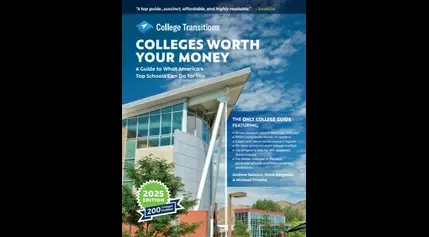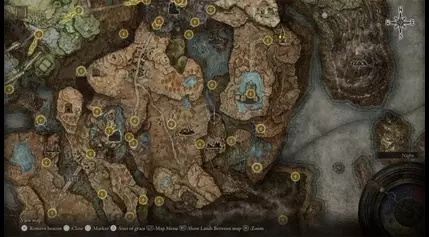Advertisement
Why Campaign Finance Reform Requires A Public Call To Action
Exposing the Corrosive Influence of Money in Hawaii's Politics: A Call for Meaningful Campaign Finance ReformFor change to come from those who work within the system, it must be accompanied by pressure from those on the outside. The recent acquittal of former Honolulu Prosecutor Keith Kaneshiro and businessman Dennis Mitsunaga on bribery charges has highlighted the urgent need for comprehensive campaign finance reform in Hawaii. Despite overwhelming circumstantial evidence, the defendants were found not guilty due to a high legal standard of proof required by federal law. This ruling, coupled with the Supreme Court's decision in Snyder v. United States, has effectively gutted the federal government's ability to address public corruption at the state and local level. The responsibility now falls on the Hawaii Legislature to enact meaningful reforms, but their past refusal to do so raises serious concerns about the state's ability to police itself.## Uncovering the Corrosive Influence of Money in Hawaii's Politics### The Kaneshiro/Mitsunaga Bribery Case and the Failure of the Federal GovernmentSeveral weeks ago, Keith Kaneshiro and members of the Dennis Mitsunaga engineering and architectural firm were found not guilty of bribery charges under the Federal Dishonest Services statute. The prosecution was required to prove beyond a reasonable doubt that there was "clear and unambiguous" evidence of a bribe, a very high and difficult standard to meet. Without a secret recording of the bribe or the testimony of a participant, the prosecution was unable to meet this burden of proof, despite what many believed was overwhelming circumstantial evidence.The Supreme Court's recent decision in Snyder v. United States further exacerbated the issue, effectively gutting the federal bribery statute as applied to state and local public officials. The Court ruled that unless there is clear evidence of a bribe before an official act is undertaken, the giving of a gratuity after the fact cannot be prosecuted under the federal dishonest services statute. This places the burden on state and local governments to enact their own criminal and ethical rules prohibiting such gratuities.### The Legislature's Failure to Enact Meaningful Campaign Finance ReformThe Supreme Court's decision raises serious concerns for good government in Hawaii, as the state legislature has repeatedly refused to enact meaningful campaign finance reform. In 2006, a measure was introduced that would have prohibited government contractors, their owners, employees, and immediate family members from making campaign contributions to politicians. However, this measure was effectively gutted at the last minute, limiting the ban solely to political donations made by the company itself, not by the individuals associated with it.More recently, an article co-authored by the New York Times and Civil Beat entitled "Inside the Late-Night Parties Where Hawaii Politicians Raked In Money" has shed light on the ongoing issues surrounding campaign finance in the state. The Kaneshiro/Mitsunaga bribery trial should serve as a wake-up call for the legislature to finally address these problems.### The Foley Commission's Recommendations and the Legislature's InactionIn 2023 and 2024, campaign finance reform measures were reintroduced by the Foley Commission (formally known as the Commission to Improve Standards of Conduct), which would have banned the owners of companies with government contracts, their employees, and immediate family members from making political donations. However, these bills silently died during the conference committee hearings at the end of the legislative sessions, and in 2024, they did not even receive a public hearing in committee.The effort to reform Hawaii's campaign finance laws is not new. Over 30 years ago, attorney John McLaren described the same issues in his article "Have we left the plantation era?" published in "The Price of Paradise Volume II." The strong connection between who gives and who gets to "feed at the government trough" is a persistent problem that has yet to be addressed.### The Appearance of Pay-to-Play PoliticsThe data shows that between 2006 and 2021, Mitsunaga and his associates donated over million to local political candidates and received over million in government contracts since 2011 alone. This raises serious questions about the integrity of the political process in Hawaii. Does anyone seriously believe that good government results when the awarding of state and local government contracts directly correlates to how much money a private company contributes to politicians?This lends to the appearance of pay-to-play politics, where those with the financial means to donate large sums of money to politicians not only have but expect special access and influence. Like Pavlov's dog, politicians will learn that if certain companies are awarded government contracts, money in the form of political donations will flow into their campaign war chests without any overt agreement. While this may not be illegal according to the Supreme Court, it is a form of non-criminal corruption that undermines the public's trust in the political system.### The Need for Comprehensive Campaign Finance Reform and EnforcementIt is now up to the Hawaii Legislature to enact meaningful and comprehensive campaign finance regulations. However, the legislature's past refusal to do so raises serious doubts about their willingness to address this issue. Additionally, the Attorney General's Office and the Prosecuting Attorney's Office have not shown the infrastructure or political will to actively investigate and prosecute these types of cases.The time for action is now. The public must demand an end to business as usual at the legislature and hold their elected representatives accountable. Legislators must be forced to publicly state their position on campaign reform measures and confronted when they vote against such measures. Legislator's offices should be flooded with phone calls, text messages, and emails voicing support for campaign finance reform and displeasure with those who oppose it.Moreover, the actions of individual legislators who oppose reform must be publicized by the press, particularly by the mainstream news organizations in Hawaii. Embarrassment can be a powerful tool in dealing with political figures, and it is time that our politicians be held accountable for their actions.The Kaneshiro/Mitsunaga bribery trial and the Supreme Court's ruling in Snyder v. United States have made it clear that the federal government can no longer be relied upon to address public corruption at the state and local level. The responsibility now falls squarely on the shoulders of the Hawaii Legislature and the people of Hawaii. The time for meaningful and comprehensive campaign finance reform is now, and the public must be willing to apply the necessary pressure to ensure that it happens.




















